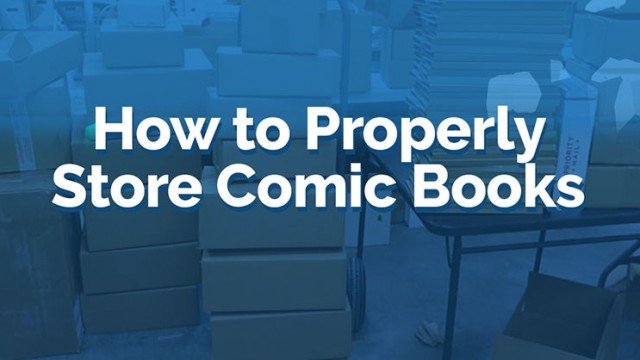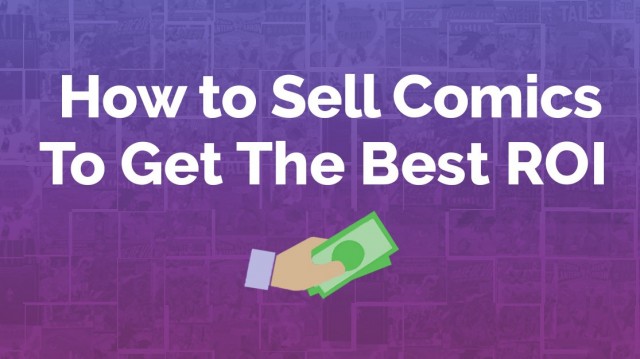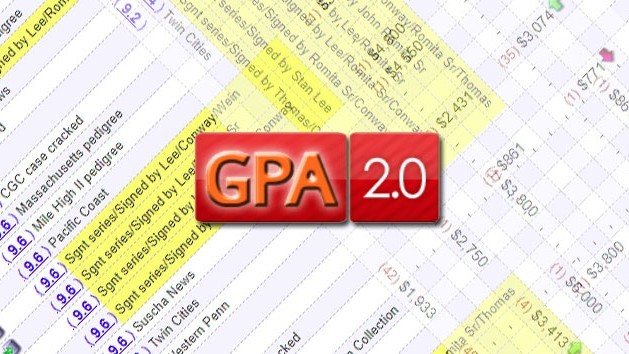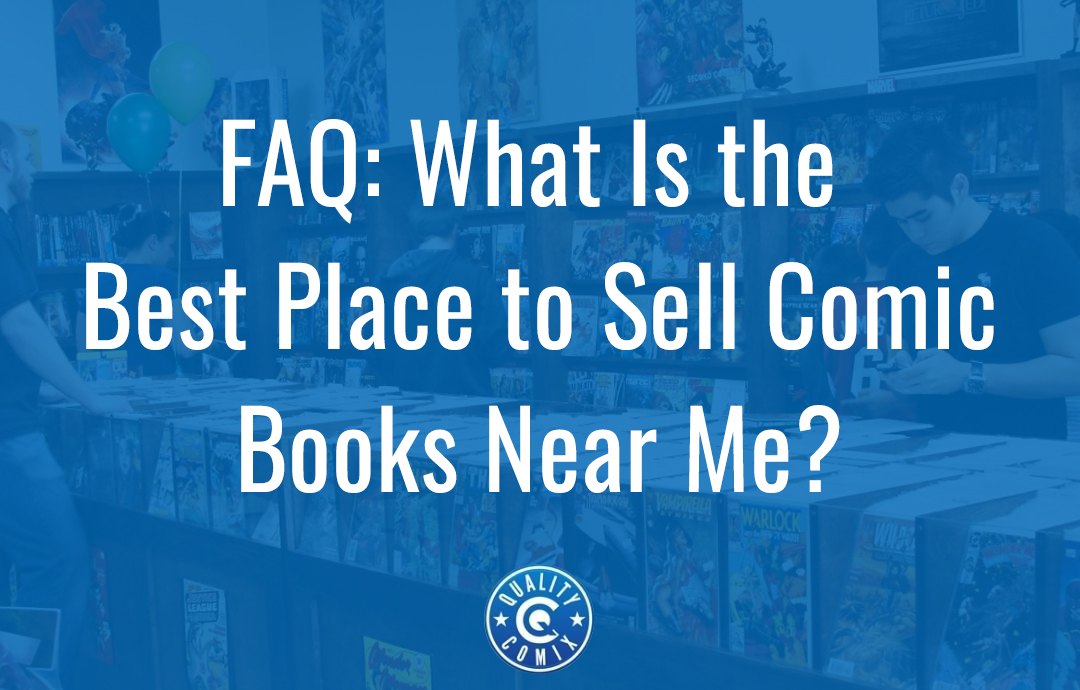
Selling your comic collection can be a daunting task. There are so many options for selling them, both locally and online. You must balance various factors, like whether you want to maximize value or if you just need them gone, and you always have to be vigilant about scams and lowball offers.
For the sake of today's post, let's assume that you've decided to sell locally. What do you need to do to sell your comics correctly, and where's the best place to do it? Here are the most common questions you may have and our tips on how to handle the process.
Before We Begin
It would be best to set realistic expectations for what you hope to receive for your comic books and the kind of interest you'll receive from buyers.
Most comics printed after 1980, also known as "Modern Age" comics, will sell for around $0.05 to $0.15 per book, though there are some exceptions.
The eras that tend to have higher values are:
- Bronze Age: Some comics in the 1970s
- Silver Age: 12-cent comics in the 1960s and briefly in the late '50s and early '70s
- Golden Age: 10-cent comics between the 1930s - 1950s. Many of the world's most valuable comics are from this era.
If you have a more extensive collection, we wrote a guide on how you can organize your comic collection by era to help you focus your efforts.
What Are Your Local Options for Selling Comics?
Selling comics in your city is often preferred when you want to meet the person you're selling to face to face, protect your collection, and get cash in hand. It avoids the perils and expenses of shipping comics, the risk of damage, the cost of insurance, and the potential for scams or fraud inherent in online sales. Of course, you aren't entirely risk-free, but your comics can't be lost in shipping if they aren't shipped, right? Also, there's the instant gratification element; you may be able to sell your comics today instead of waiting to have your comics appraised.
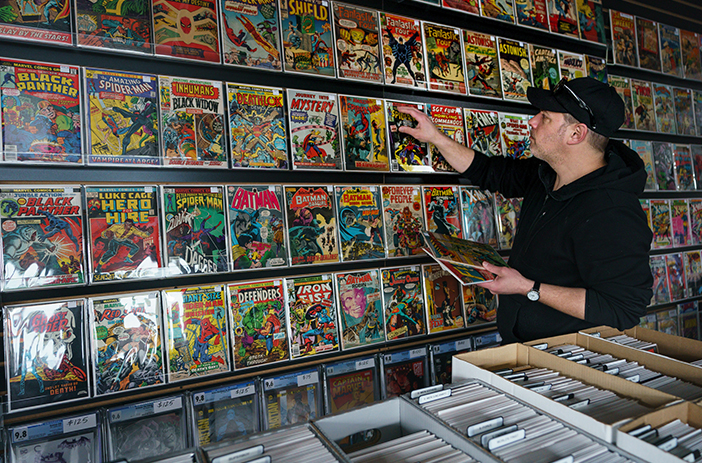
Depending on where you live, there may be many different options for selling locally, or there may only be a few. Below, we've listed the choices you may have, along with some pros and cons. This list should give you a good idea of the kinds of places you can check to offer your comics for sale.
1. Local Comic Shops (LCS)
The first and, usually, the best option is going to be a local comic shop. You can find local comic shops by doing a Google or Google Maps search for "comic shop near me" and seeing what comes up. You can also search sites like Yelp or YP for listings.
Local comic shops are generally available unless you live far from any nearby metropolitan areas, and even then, there may be one relatively nearby.
Most – but not all – comic stores are generally trustworthy. There's always the risk that a comic store owner will be underhanded in their dealings with you and might try to lowball you or pressure you into accepting a worse offer than you would typically, but that's genuinely the minority in comic shops.
Comic shops will generally buy comics one at a time if they're valuable single issues or all at once at a bulk rate. Bulk rates are usually the only way to offload low-value comics simultaneously, at least outside of exceptional circumstances. On the other hand, individual comic sales can get you closer to fair market value for your valuable books but leave you with low-value books that no one is interested in buying.
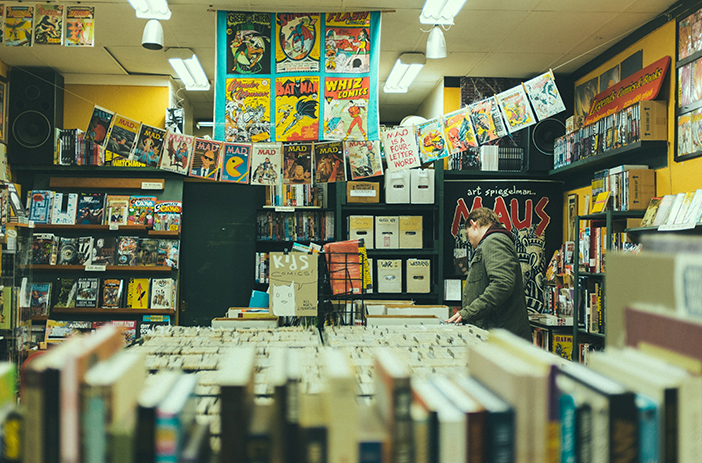
The biggest drawback to local comic stores is their overhead. Comic stores need to resell your comics for a profit, so they need to offer you less than fair market value. It's not uncommon to see offers around 40-50% of the fair market value, and potentially slightly more if you take it in-store credit rather than cash. They run the risk of not being able to resell your books in the future, they need to pad in their margins when the time comes, and their list price needs to be reasonable.
Selling a whole collection at "Buylist" pricing is the fastest way to offload it, but you will not get the total market value. It's important to maintain realistic expectations if you're looking to receive a fair offer; it has to make sense to the comic book store, too, so they can resell it to somebody for a higher price.
2. Local Game Stores (LGS)
Local game stores are similar to local comic shops, except instead of focusing on comics, they focus on things like board games and trading card games. You'll need to look for a local game store that deals in comic books since not all of them do. If you're having a hard time finding a local comic book shop, many local game stores also buy and sell comics, so this could be an excellent second option.
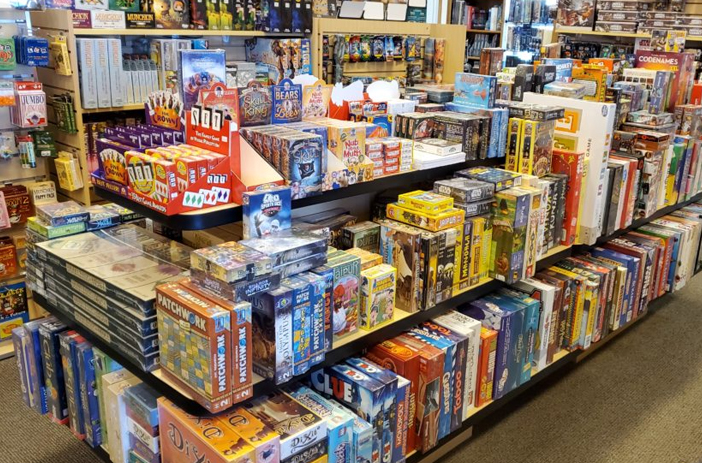
Otherwise, their pros and cons are identical to local comic shops.
3. Craigslist
Craigslist is among the oldest online classified listing sites, and you've undoubtedly heard of it by reputation, even if you've never browsed or used it. You can post anything you like on it and entertain offers from people who may be willing to buy your collection.
The worst drawback to Craigslist is simply the volume of scammers that use the site. Many will lowball you, offer something high and try to lowball you in person, or may lead you on and never show up to view the collection. If you can find a good, interested buyer, you can strike a great deal. The chances of that happening, though, are often just very low.
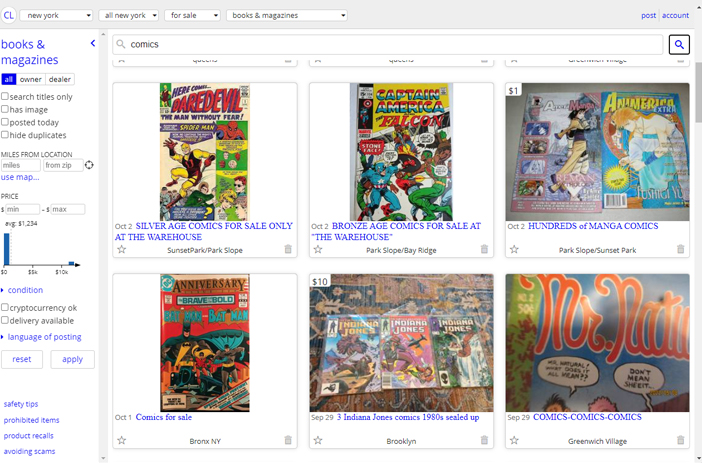
Craigslist is also generally limited to nearby major metropolitan areas. If you live in a rural area, you may need to check the nearest city's site, which can encompass a large enough geographic area that can hardly be considered "local" anymore. Still, comic book collectors lurk around Craigslist and are always hoping to scoop up someone's valuable collection and ideally earn a reasonable profit.
4. Facebook Marketplace
Facebook is Facebook.
Their Marketplace system is similar to Craigslist but has more Facebook-style tracking, personal identification, and granular local searching. You can post your items for sale and see who bites, and you may get reasonable offers and strike a good deal. Or, you may be given the runaround by scammers yet again.
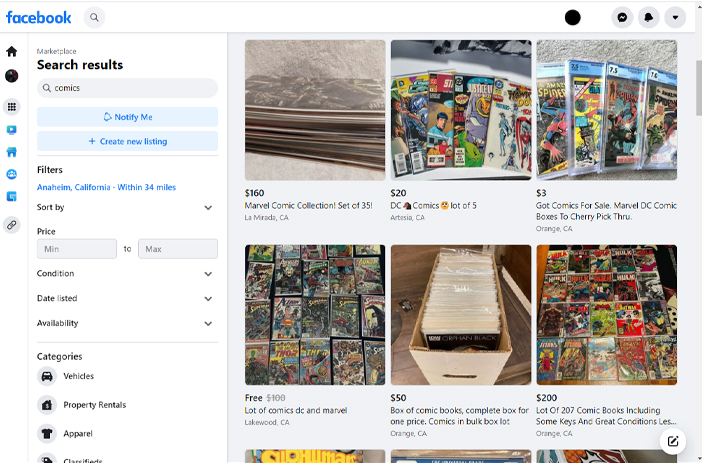
One potential benefit of Facebook is that you can often get a glimpse into the profile of the person making you an offer if their privacy settings aren't locked down. This feature allows you to see if they seem trustworthy or if they often post about or deal in comics. It's not a surefire way to weed out the worst, but it can be a good vibe check. At least you can see if they don't have a profile photo or any posts yet, and avoid the offers from users that don't pass the sniff test.
5. Pawn Shops
Pawn shops are hit or miss and almost always miss. Many won't take your comics, and those that do will not give you a reasonable rate for them. They can be a quick way to offload your comics without hassle, but you will get bargain bin rates at best. Most pawn shops don't have many (or any) comics for sale, so there will be some skepticism from the shop owners on their ability to sell your comics to someone else in the future.
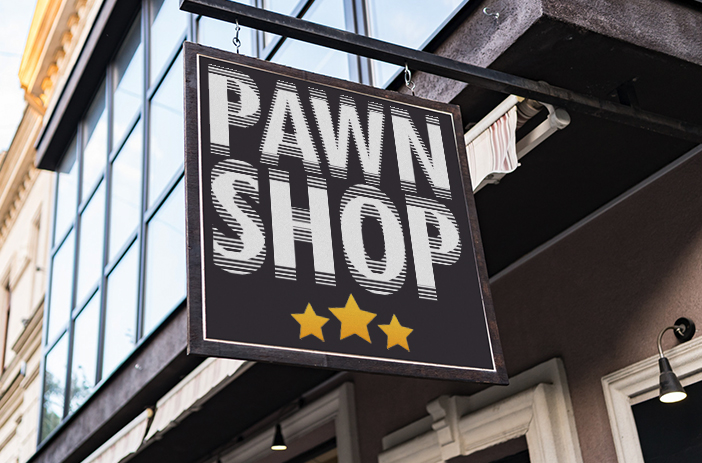
Pawn shops typically lend you approximately 10-40% of the items resell value, depending on how easy your belonging is to resell. If the pawn shop doesn't already sell comics, you can expect to receive the lower end of that range. If your comic book is worth $1000, they may only offer you $100. If you're in a rush and need the cash for your comics quickly, it doesn't get much speedier than a pawn shop.
6. Local Subreddits
Reddit often has a massive array of local subreddits within various locations. Major cities have them, sometimes individual neighborhoods, boroughs, or suburbs have them, and so on. Since it's all user-created, it can vary wildly between mostly-dead communities or vibrant, active scenes.
It's worth checking to see if there's a subreddit dedicated to your location and how active it is.
If it's a reasonably active subreddit, you can post in it (making an account is free and easy) and either ask where you could sell your comics or post them for sale directly.
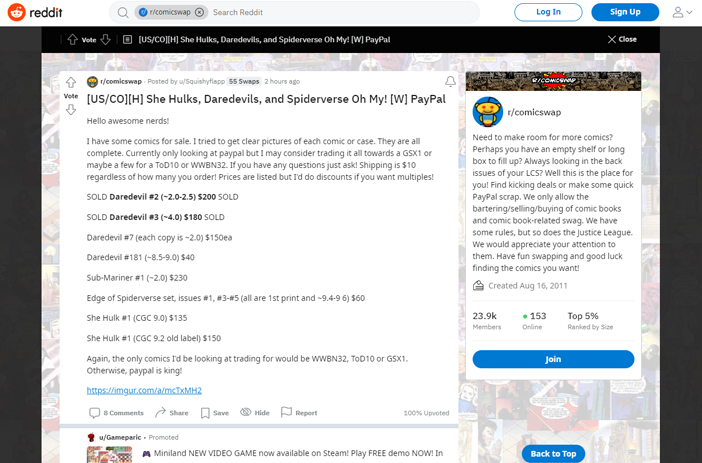
It's often a good idea to ask where you can sell them to see what other users have to say about local comic and games stores and other potential dealers or buyers in the area. For example, some cities have a well-known collector who you wouldn't otherwise be able to find but could be recommended by others who have been in a similar position.
7. Local Comic Conventions
Everyone knows the famous conventions like PAX or San Diego Comic-Con, but hundreds of (mostly smaller) comic conventions are held across the country every year.
Comic conventions can be an excellent place to connect and talk to people about the collection you have to sell.
Now, you shouldn't bring your whole collection and lug it around the convention floor looking for buyers.
Instead, look for people advertising that they're selling, and talk to them about your collection to see what kind of offer they would give. Since it's a convention, you can gather bids from various vendors and go with the best one.
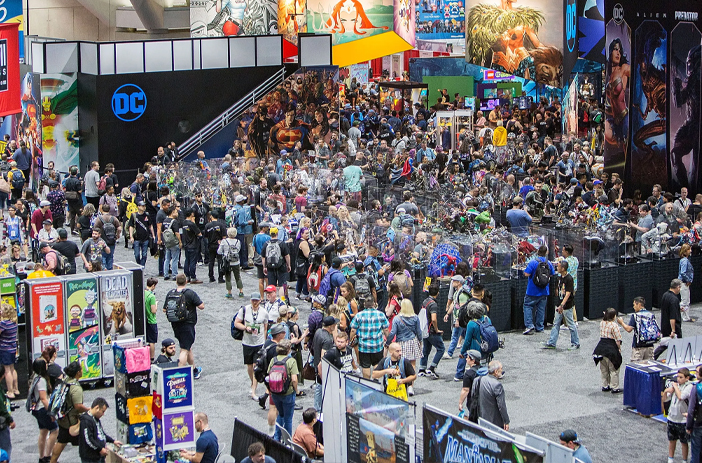
The downsides here are pretty obvious. First, your location may not have a comic convention at all. Second, even if it does, it may be months before the next one is held in your area.
Third, you have to attend the convention, which generally costs money.
On the other hand, many vendors will travel for conventions, so you may have the opportunity to sell to a vendor or collector from out of state who can give you a better rate than you would otherwise get. It's mostly luck, though.
8. Yard Sales
Every year during the pleasant spring and summer months (or year-round in some areas of the country), people will host garage and yard sales to sell their second-hand goods.
If you've browsed through these before, you've probably recognized that you'll see way more baby clothes, old Christmas decorations, and $1 knick-knacks for $5 than anyone could ever need. But, sometimes, you can find genuine gems and great deals, and plenty of people trawl the yard sale circuit every weekend looking for those gems.
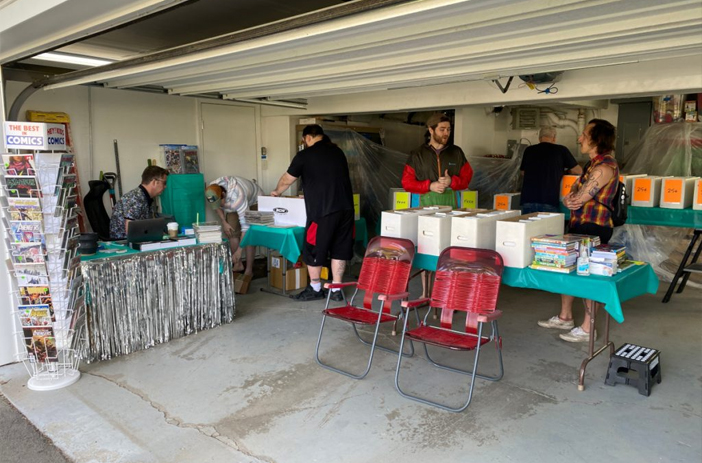
If you want to host a yard sale, it's easy, though you may need to see if your location requires a permit or permission from your HOA.
You'll also want to advertise on Craigslist to let people know you have comics at your yard sale.
It's also usually a good idea to have other items for sale too, you know, to clear things out.
The downside to this method is that you have to be around to watch a yard sale all weekend, and there's a not-insignificant chance that no one will make an offer. Also, people typically go to yard sales expecting to pay around 50-90% of the item's value, so if you list the pricing too high, it may not sell. Lastly, yard sales tend to attract dozens of people, and if you leave valuable comics out to be touched and handled, you risk damaging them and hurting their value.
How Do I Find a Local Comic Store?
It's usually pretty easy to find a local comic store through Google, Google Maps, or a business directory like Yelp or Yellow Pages. You can also try a few directories and store locators for comic stores.
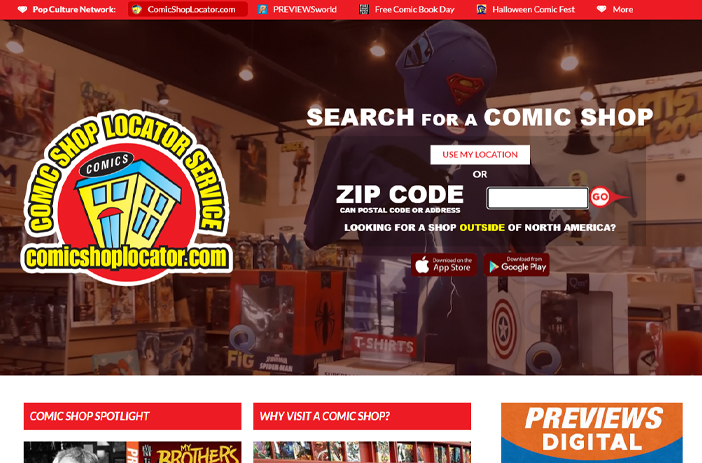
These include:
- Comic Shop Locator – This site primarily uses Bing Maps to search but also has a proprietary directory and promoted shops.
- Find a Comic Shop – This site uses Google Maps and a proprietary directory. It can find some shops that aren't typically visible but also miss out on others.
- Free Comic Book Day's Store Locator – not linking this one because it's identical to Comic Shop Locator.
Honestly, in today's internet-connected world, it's easier to locate comic shops, read reviews, and judge which ones may be the best and most reputable businesses.
What is the Fair Market Value for My Comics?
Fair Market Value is an official term for the amount of money a particular comic is generally valued based on its condition. This value can be based on recent sales on eBay and through auctions (for rare and older books) or on general factors like the interest and rarity of the comic. There are a variety of price lists available online as well.
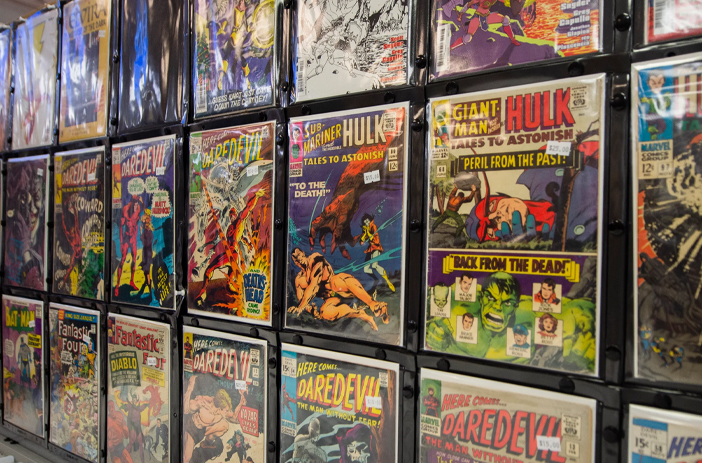
You can reach out to us for an appraisal if you have a large or significant collection. Our free tool allows you to price-check individual issues or to describe your collection to us for a more personalized appraisal of the collection as a whole. It's free, and there's no obligation, so there's no reason not to do it. In the best-case scenario, we'll let you know if you have something valuable on your hands so you don't accidentally sell it for far less than it's worth.
If you have comics that are key issues, are particularly old, are graded, are autographed, or are otherwise unusual, it's worth getting them appraised as well; they may be worth more than the average comic.
What Kind of Offers Can I Expect?
The offers you receive depend entirely on where you're selling, how, and what. Rare, valuable comics can be sold for fair market value through venues online, certain reputable vendors, or consignments. If you're selling to individual collectors privately, you can get close to fair market value.
Local comic stores are somewhere in the middle. Their Buylist and bulk prices are generally around half the value of the comics, though various factors can make this number go up or down.
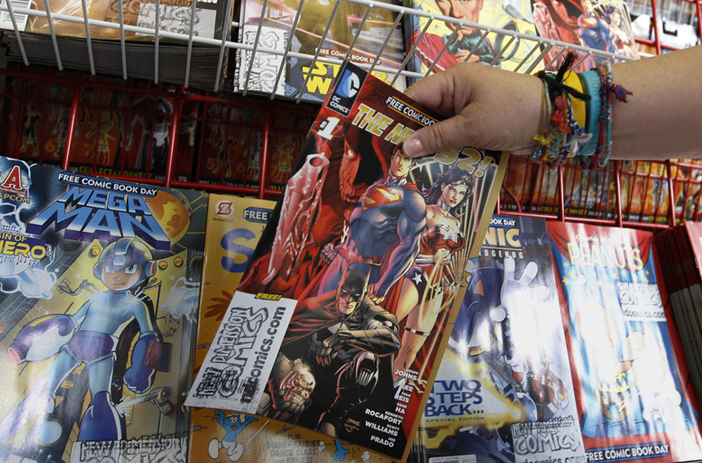
Places like pawn shops, lowballers, and local frauds are, of course, going to give you next to nothing.
It's always a good idea to appraise your comics so you don't get the wool pulled over you.
Should I Consider Selling Online Instead?
That's entirely up to you!
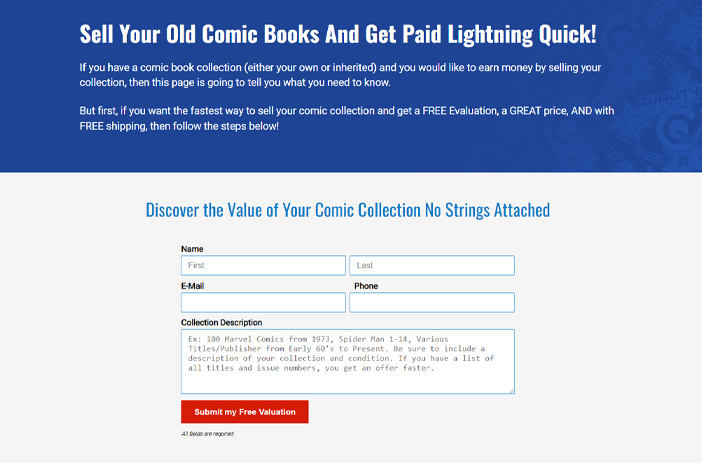
Selling online opens up a whole world of well-known and reputable dealers and auctions. If you're trying to maximize the money you get from your collection and are willing to take the time to do it, selling online can be a great option. On the other hand, if you're trying to sell an extensive bulk collection or lower-value comics, online deals might not be worth the price of shipping.
Do you have comics you're looking to sell? Feel free to reach out to us with questions. We're more than happy to appraise your collection, answer your questions, and talk shop. We're all fans here!

